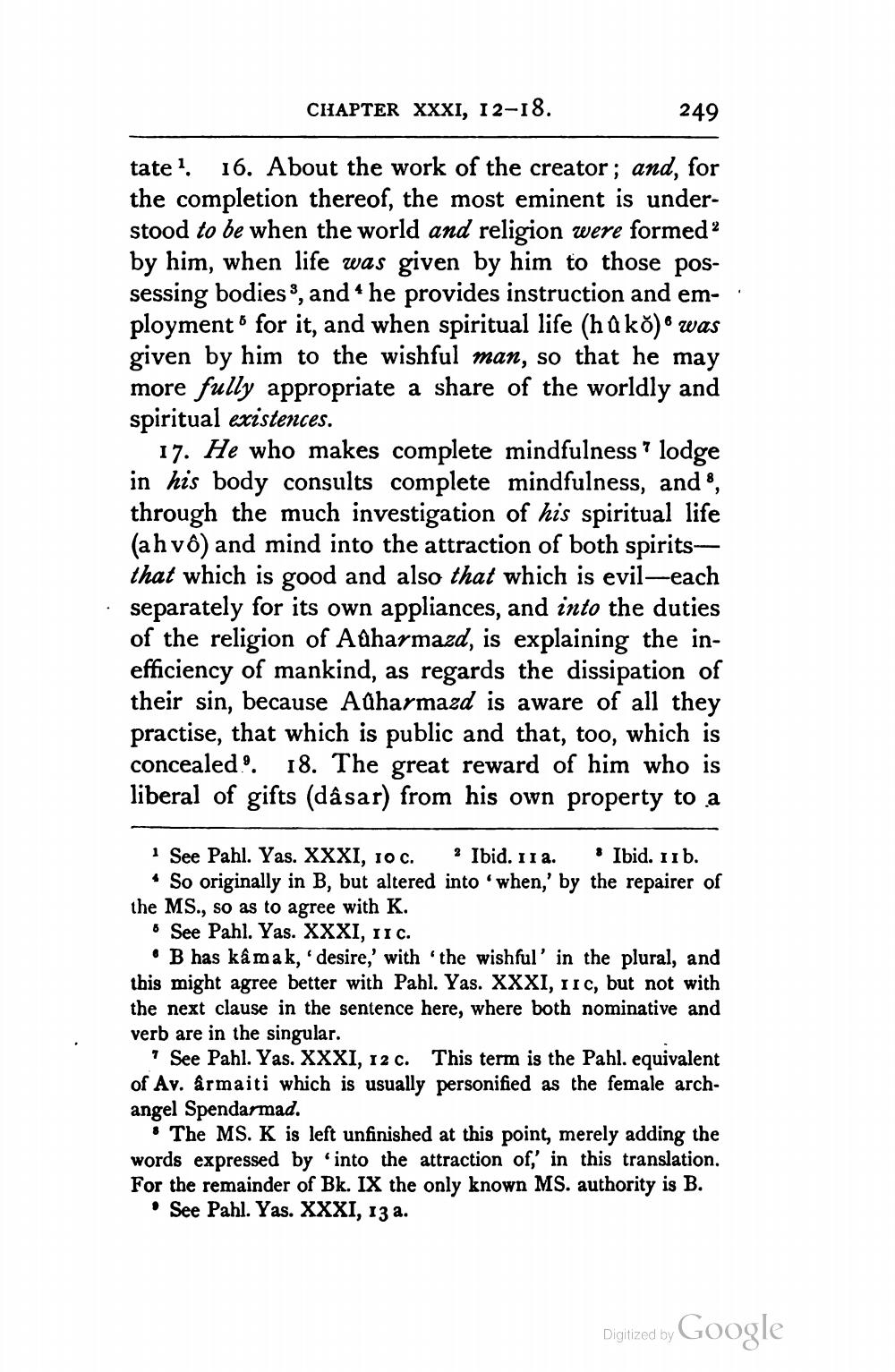________________
CHAPTER XXXI, 12-18.
249
tate 1. 16. About the work of the creator; and, for the completion thereof, the most eminent is understood to be when the world and religion were formed a by him, when life was given by him to those possessing bodies, and he provides instruction and employment for it, and when spiritual life (h a ko) was given by him to the wishful man, so that he may more fully appropriate a share of the worldly and spiritual existences.
17. He who makes complete mindfulness ? lodge in his body consults complete mindfulness, and 8, through the much investigation of his spiritual life (ah vô) and mind into the attraction of both spiritsthat which is good and also that which is evil-each separately for its own appliances, and into the duties of the religion of Adharmazd, is explaining the inefficiency of mankind, as regards the dissipation of their sin, because Adharmazd is aware of all they practise, that which is public and that, too, which is concealed". 18. The great reward of him who is liberal of gifts (dâ sar) from his own property to a
* See Pahl. Yas. XXXI, 10C. Ibid. 11 a. Ibid. 11 b.
• So originally in B, but altered into when,' by the repairer of the MS., so as to agree with K.
* See Pahl. Yas. XXXI, II C.
• B has kamak, desire,' with the wishful' in the plural, and this might agree better with Pabl. Yas. XXXI, IIc, but not with the next clause in the sentence here, where both nominative and verb are in the singular.
See Pahl. Yas. XXXI, 12 c. This term is the Pahl. equivalent of Av. armaiti which is usually personified as the female archangel Spendarmad.
The MS. K is left unfinished at this point, merely adding the words expressed by into the attraction of,' in this translation. For the remainder of Bk. IX the only known MS. authority is B.
• See Pahl. Yas. XXXI, 13 a.
Digitized by Google




